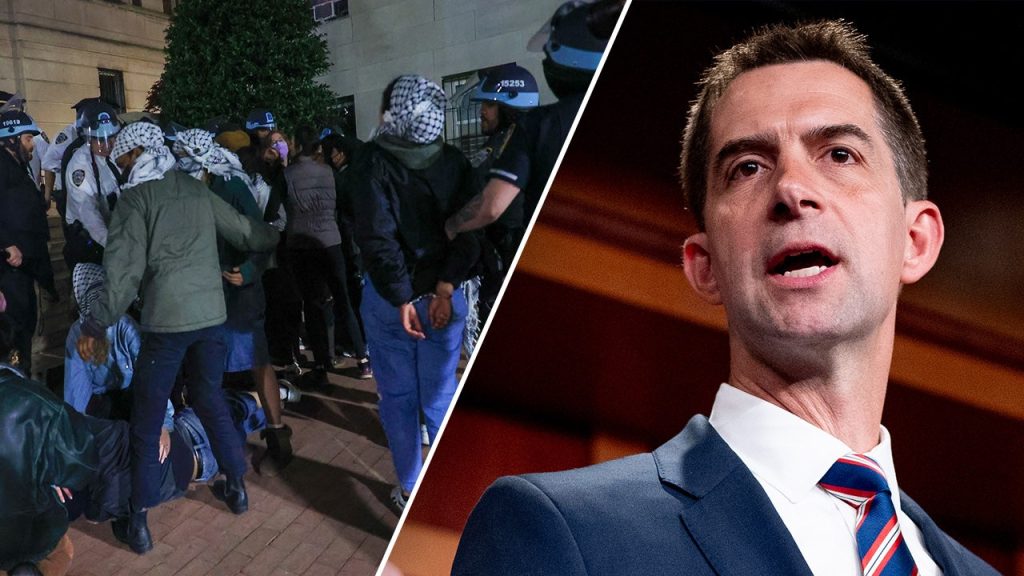Sen. Tom Cotton, a Republican from Arkansas, has criticized the possibility of student loan forgiveness being extended to anti-Israel agitators at universities nationwide. He introduced The No Bailouts for Campus Criminals Act, which would prevent those convicted of crimes related to conduct during protests at higher education institutions from receiving student loan forgiveness. Cotton believes that Americans who did not attend college or responsibly pay off their debts should not have to pay off other people’s student loans, especially those of individuals involved in violent protests.
The legislation was co-sponsored by 16 other Republican senators, including Tim Scott, Lindsey Graham, Marsha Blackburn, Marco Rubio, and Mitt Romney. Cotton’s bill was prompted by the rise of anti-Israel and antisemitic protests at universities across the country, some of which have turned into riots. The spread of protests has been concerning, with incidents occurring at 47 of the nation’s top 50 universities. In New York alone, approximately 300 individuals were arrested by the NYPD during anti-Israel demonstrations at Columbia University and City College.
President Biden’s initial plan for student loan debt forgiveness faced legal challenges, leading the administration to consider more targeted forgiveness for specific groups. Cotton’s bill aims to make individuals convicted of crimes during protests ineligible for student loan forgiveness. Companion legislation for the measure was introduced in the House by Rep. Brandon Williams, who emphasized that no taxpayer money should go towards funding student protesters who have been convicted of criminal offenses.
Sen. John Kennedy joined Cotton in addressing the protests, criticizing Biden for not taking more decisive action to stop them. Biden has acknowledged the importance of dissent in democracy but emphasized that it should not lead to disorder. Cotton’s bill serves as a response to the recent wave of campus protests and riots, particularly those fueled by anti-Israel sentiments. The legislation aims to ensure that individuals involved in criminal activities during protests do not benefit from student loan forgiveness, protecting taxpayer funds from being used to support these individuals.
The White House did not immediately respond to requests for comment on Cotton’s legislation. The senator’s bill is part of a broader effort among Republicans to address the issue of violent protests on college campuses, particularly those involving anti-Israel sentiments. By making individuals convicted of crimes during protests ineligible for student loan forgiveness, Cotton aims to hold protesters accountable for their actions and prevent taxpayer funds from supporting criminal behavior. The bill has garnered support from several Republican senators and representatives who are concerned about the rise of violent protests at universities across the country.


